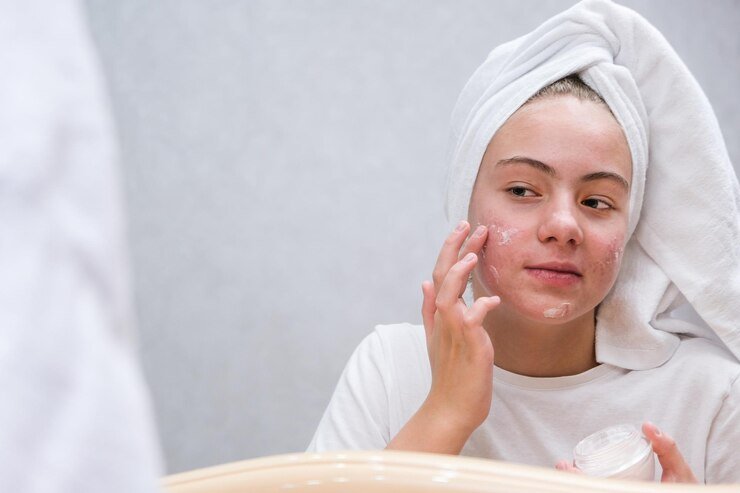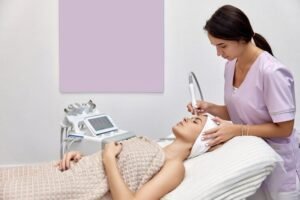Introduction:
Acne affects millions of people worldwide, causing physical discomfort and emotional distress. Whether you’re dealing with occasional breakouts or chronic acne, finding effective ways to manage this skin condition is crucial for achieving clearer, healthier skin. In this blog post, we’ll explore common causes of acne, different types of acne, and practical tips for achieving clearer skin with the guidance of dermatologist Dr. Dipali Malvankar.
Understanding Acne:
Acne occurs when hair follicles become clogged with oil and dead skin cells, leading to the formation of pimples, blackheads, and whiteheads. Factors such as hormonal changes, genetics, and lifestyle habits can contribute to the development of acne.
Types of Acne: Acne can manifest in various forms, including:
- Whiteheads: Closed comedones that appear as small white bumps on the skin’s surface.
- Blackheads: Open comedones that develop when hair follicles become clogged with oil and debris, creating a dark appearance.
- Papules and Pustules: Inflamed lesions that appear as red bumps or pus-filled pimples on the skin.
- Cysts and Nodules: Deep, painful lesions that develop beneath the skin’s surface and can lead to scarring if not treated promptly.
Tips for Clearer Skin:
- Establish a Consistent Skincare Routine: Cleanse your skin twice daily with a gentle cleanser suitable for your skin type. Incorporate products containing ingredients such as salicylic acid or benzoyl peroxide to target acne-causing bacteria and unclog pores.
- Avoid Overwashing: While it’s essential to keep your skin clean, overwashing can strip the skin of its natural oils, leading to irritation and potentially worsening acne. Stick to cleansing your face twice daily and avoid harsh scrubbing.
- Moisturize Daily: Even if you have oily or acne-prone skin, moisturizing is essential to maintain skin hydration and prevent excess oil production. Choose oil-free, non-comedogenic moisturizers to avoid clogging pores.
- Use Non-Comedogenic Products: Opt for skincare and makeup products labeled as “non-comedogenic,” meaning they are formulated to not clog pores and aggravate acne.
- Avoid Touching Your Face: Touching your face can transfer bacteria and oils from your hands to your skin, leading to breakouts. Resist the urge to pick or pop pimples, as this can cause inflammation and scarring.
- Protect Your Skin from the Sun: Use a broad-spectrum sunscreen with an SPF of 30 or higher daily to protect your skin from harmful UV rays. Sunscreen helps prevent acne scarring and hyperpigmentation.
- Consult with a Dermatologist: If over-the-counter acne treatments fail to improve your skin or if you experience severe or persistent acne, seek professional help from a dermatologist like Dr. Dipali Malvankar. A dermatologist can evaluate your skin, recommend appropriate treatments, and provide personalized skincare advice tailored to your needs.
Conclusion: Managing acne requires a multifaceted approach that combines proper skincare habits, lifestyle modifications, and, when necessary, professional intervention. By understanding the causes of acne and implementing effective skincare strategies, you can achieve clearer, healthier skin and regain your confidence.




